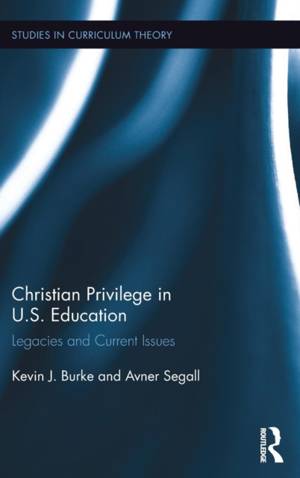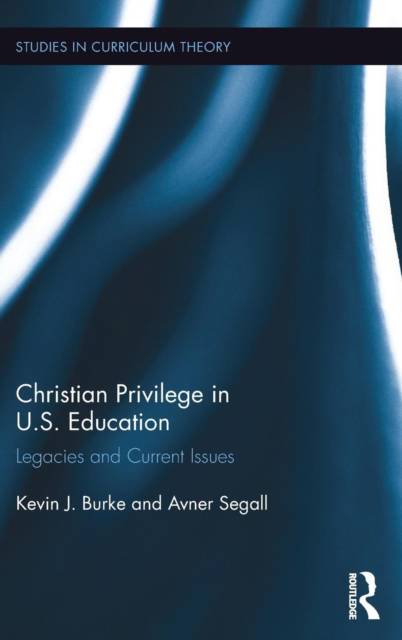
- Retrait gratuit dans votre magasin Club
- 7.000.000 titres dans notre catalogue
- Payer en toute sécurité
- Toujours un magasin près de chez vous
- Retrait gratuit dans votre magasin Club
- 7.000.000 titres dans notre catalogue
- Payer en toute sécurité
- Toujours un magasin près de chez vous
Description
Using critical curriculum theory as its lens, this book explores the relationship between religion-specifically, Christianity and the Judeo-Christian ethos underlying it-and secular public education in the United States. Despite various 20th-century court decisions separating religion and education, the authors challenge that religion is in fact absent from public education, suggesting instead that it is in fact very much embedded in current public educational practices and discourses and in a variety of assumptions and perspectives underlying understandings of teaching, learning, and teacher preparation. The book reframes the discussion about religion and schooling, arguing that it remains in the language and metaphors of education, in the practices and routines of schooling, in conceptions of the "'child" and the "teacher" (and what happens between them in the spaces we call "learning," the "classroom," and "curriculum") as well as in assumptions about the role of schools emanating from such conceptions and in the current movement toward accountability, standardization, and testing. Christian Privilege in U.S. Education examines not whether Christianity has a place in public education but, rather, the very ways in which it is pervasive in a legally secular system of education even when religion is not a topic taught in school.
Spécifications
Parties prenantes
- Auteur(s) :
- Editeur:
Contenu
- Nombre de pages :
- 162
- Langue:
- Anglais
- Collection :
- Tome:
- n° 42
Caractéristiques
- EAN:
- 9781138649941
- Date de parution :
- 08-12-16
- Format:
- Livre relié
- Format numérique:
- Genaaid
- Dimensions :
- 152 mm x 229 mm
- Poids :
- 390 g







